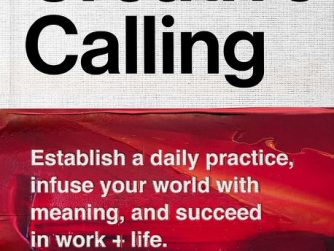 Dr. David Fitch has just released a new book entitled The End of Evangelicalism? Discerning a New Faithfulness for Mission: Towards an Evangelical Political Theology from Wipf and Stock publishers. David is a bi-vocational pastor at Life on the Vine and the B.R. Lindner Chair of Evangelical Theology at Northern Seminary and blogs at Reclaiming the Mission. In a series of posts, I want to explore Fitch’s argument and discuss his conclusions.
Dr. David Fitch has just released a new book entitled The End of Evangelicalism? Discerning a New Faithfulness for Mission: Towards an Evangelical Political Theology from Wipf and Stock publishers. David is a bi-vocational pastor at Life on the Vine and the B.R. Lindner Chair of Evangelical Theology at Northern Seminary and blogs at Reclaiming the Mission. In a series of posts, I want to explore Fitch’s argument and discuss his conclusions.
In Chapter five of David Fitch’s book, he looks at the evangelical concept of the Christian nation through the lens of Zizek’s political theory. In the first post on this chapter, I described the history of the Christian nation concept. In this post I will describe Fitch’s application of Zizek’s theory and see why the idea as currently embodied shapes us for dispassion.
The idea of a Christian nation as described in the previous post, Fitch notes, “tells us much about our ecclesiology. It speaks to the fact that we do not see the church as having a social reality on it’s own.” There is no imagination for seeing itself as a politic in the world, as a community separated from the American dream and the American way of life. The Christian faith never becomes a way of life we embody and live in the world. As a result, Fitch states that the “Christian nation then acts as a symbol of the evangelical non-belief in the church. It organizes Christians to do Christ’s work always away from the church…It is a signifier that keeps justice at a safe distance so that we rarely have to ‘get dirty’ ourselves. We can work for the Christian nation through voting or trying to get other Christians to vote, but we do not have to work as one among the poor ourselves.” It is a way we can practice justice as a program external to the church that leaves the church untouched.
But what does “the Christian nation” mean? For most it has been an attempt to get anti-abortion, pro-family, anti-gay marriage legislation passed along with restoring prayer in the public schools. But if this legislation was passed, how would this nation be Christian? World more people be acting like Christians? Would more Americans be doing less of the “off-limit” things Christians should not do?
Isn’t this just an attempt to legislate morality? Yet isn’t this also trying to achieve what can only be done ultimately through Christ? We are attempting to legislate a morality we think is possible only through conversion and plays to the fear that if we do not do this we will lose our children to moral decadence. As a result, “the Christian nation” defines evangelicalism by what it is against, not what it is for or who we are as a the social body of Christ in the world.
Evangelical Capitalism
An outgrowth of the Christian nation is the idea of what one author calls “Evangelical Capitalism.” While not claiming socialism (or any other ism for that matter) as being a better economic framework than capitalism, Fitch notes that evangelicals “fight vehemently for market capitalism by often making it the one true Christian system of economics. Evangelicals argue that property ownership and diligence in hard work are virtues to be honored as biblical and as best embodied in market capitalism.”
Albert Mohler, an evangelical leader and president of The Southern Baptist Theological Seminary in Louisville, KY, summed up his idea of the Christian nation’s version of capitalism at the height of the US financial crisis in 2008. He said:
The free market is not perfect, but capitalism has brought more wealth to more people than any other system. It rewards investment, labor, and thrift and rises on innovation. Better ideas and better products push out inferior ideas and inferior products. Given the reality of human sin, we should not centralize economic control in the ands of the few, but distribute economic power to the many. A free market economy distributes power to multitudes of workers, inventors, investors, and consumers.
In this, Fitch states, “Mohler joins the Christian doctrine of sin with democracy and market capitalism under one Christian theological vision. He applies divine sanction to the ‘invisible hand’ of the market as the distributor of power. Capitalism for Mohler has become part of the vision for the ‘Christian nation.'” In this, Mohler makes the same contradiction that underlies the evangelical belief in “the Christian nation” also lies beneath this version of capitalism. In both canes, the priority of the individual is maintained in morality while being activists in society. In the advocacy of market capitalism, evangelicals promote their version of “biblical” personal morality – the virtues of hard work and individual responsibility – and to actively engage society for change. In the same way, then as evangelicals fear the demise of morality, evangelical capitalism plays on the fear of those who would steal our security and the efforts of our hard work – those sinners who somehow need to learn the virtues of personal responsibility and hard work.
The result on the church is that capitalism has become an ideological part of the evangelical narrative of what it means to be a Christian in the world. “Evangelicals run their churches as businesses, elevate successful businessmen as leaders/elders of the church, and use business principles of leadership in terms of hiring and evaluating ministers.” Additionally Fitch believes that it shapes us for dispassion because we choose to help the poor from a distance and do missions from a distance. Instead of going and loving ourselves, we send money so others can do it.
Questions for us:
1. How do you view Fitch’s understanding of church as having no real communal society but adopting the idea of the American dream and the Christian nation as its understanding of how to live in culture and community?
2. Do you agree with Fitch’s questioning of the meaning of the Christian nation? Why or why not?
3. Do you agree Fitch’s understanding of market capitalism and the church’s adoption of it? Why or why not?
4. Do you agree with Fitch’s understanding how capitalism and the Christian nation has formed American Christianity? Why or why not?



